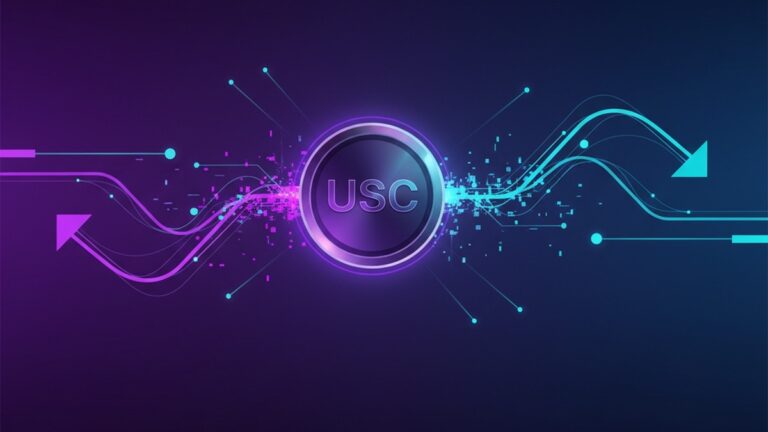In a move that has stirred the crypto community, Circle, the issuer behind the popular stablecoin USD Coin (USDC), is facing significant backlash over its latest proposal to introduce reversible transactions. While Circle argues that this initiative is aimed at combating fraud, critics are not convinced and fear it could centralize decentralized finance (DeFi) and erode its foundational principles.
Aiming to Curb Fraud
Circle has positioned the proposal as a necessary step to enhance security within the cryptocurrency ecosystem. Fraudulent activities have been a persistent issue, with millions lost annually to scams and hacks. The ability to reverse transactions, Circle contends, would provide a safeguard for users who fall victim to these malicious acts. Jeremy Allaire, Circle’s CEO, emphasized the company’s commitment to protecting consumers, stating, “Our primary goal is to ensure that users have a secure and reliable experience with USDC, and reversibility is a tool we believe can help achieve that.”
Concerns Over Centralization
Despite these assurances, the proposal has been met with skepticism from various quarters within the crypto space. A significant concern is that allowing reversibility could inadvertently centralize power within Circle, contradicting the decentralized ethos that underpins cryptocurrencies. Critics argue that such power could lead to misuse or overreach, where Circle might exercise too much control over transactions, essentially acting as a gatekeeper.
Decentralization is a fundamental tenet of the blockchain and crypto world, designed to prevent any single entity from having excessive control. Critics fear that introducing reversibility could set a precedent that undermines this principle, potentially altering the industry’s landscape. “Reversibility sounds good in theory, but it opens the door to centralization,” warned crypto analyst Laura Shin. “Once a company can reverse transactions, it gains a level of control that’s antithetical to what DeFi stands for.”
Community Reaction
The crypto community has been vocal in its response, with many expressing their concerns on social media platforms like Twitter and Reddit. Some users worry that if Circle’s proposal goes ahead, it could lead to a slippery slope of increasing centralization across other stablecoins and blockchain projects. “If Circle can reverse transactions at will, what’s to stop other issuers from doing the same?” posed a Reddit user, encapsulating a widespread sentiment among decentralization advocates.
Proponents of the DeFi movement, who champion a trustless system where transactions are immutable and transparent, see the move as a potential regression. They argue that the irreversibility of transactions is a critical feature that ensures trust and security without needing a centralized authority to oversee and manage disputes.
Balancing Security and Decentralization
The debate over Circle’s proposal highlights a broader tension within the cryptocurrency industry: the balance between security and decentralization. While the need for fraud prevention is undeniable, particularly as crypto adoption grows, finding solutions that don’t compromise decentralization remains a challenge.
Some experts suggest that alternative methods could address fraud without introducing reversibility. Enhanced user education, improved wallet security features, and more robust smart contract audits are among the proposed solutions that could mitigate fraud risk without centralizing control. “We need to be innovative in our approach to security,” said blockchain consultant Adam Back. “There are ways to protect users without undermining the decentralized nature of the blockchain.”
Looking Forward
As the debate continues, Circle’s proposal is likely to undergo further scrutiny and discussion within the crypto community. Whether the company will proceed with implementing reversible transactions remains to be seen, but the backlash underscores the importance of maintaining a delicate balance between innovation and the core principles of decentralization.
For now, Circle is in a challenging position, needing to address legitimate security concerns while respecting the decentralized principles that have made cryptocurrencies like USDC popular. As the conversation evolves, it will be crucial for stakeholders to engage in open dialogue, ensuring that any potential solutions align with the broader values of the crypto ecosystem.
In the rapidly changing world of cryptocurrency, where both opportunities and challenges abound, the path forward for Circle and USDC will be closely watched. Whether the company can navigate these waters successfully will likely have significant implications not only for USDC but for the broader DeFi landscape as well.

Steve Gregory is a lawyer in the United States who specializes in licensing for cryptocurrency companies and products. Steve began his career as an attorney in 2015 but made the switch to working in cryptocurrency full time shortly after joining the original team at Gemini Trust Company, an early cryptocurrency exchange based in New York City. Steve then joined CEX.io and was able to launch their regulated US-based cryptocurrency. Steve then went on to become the CEO at currency.com when he ran for four years and was able to lead currency.com to being fully acquired in 2025.


